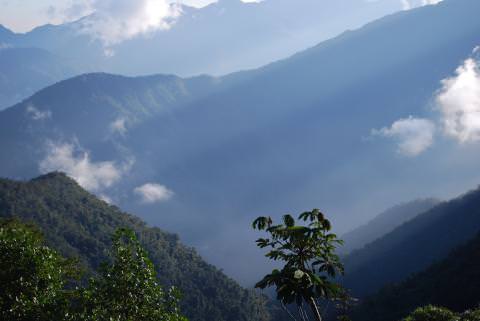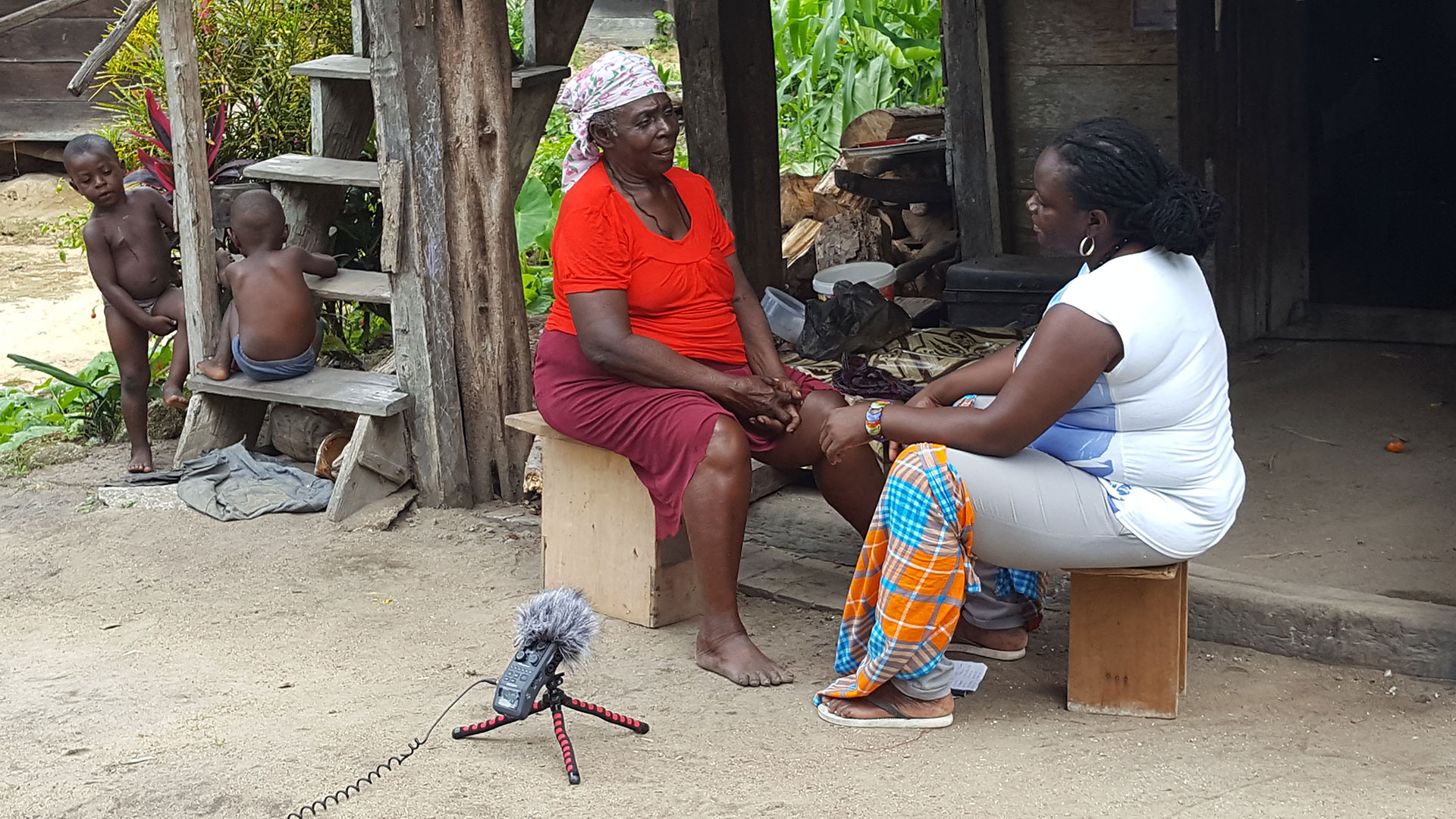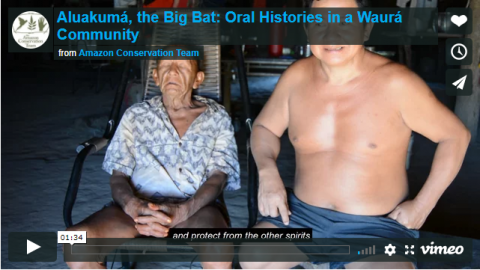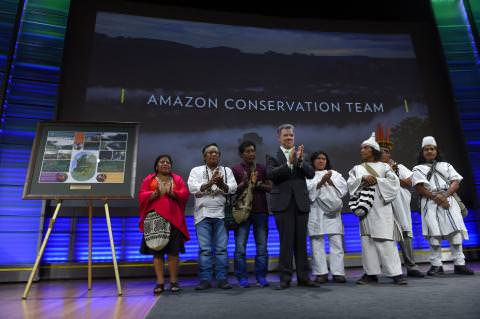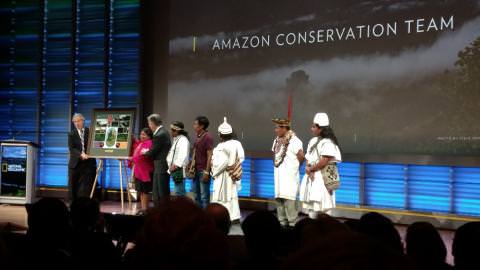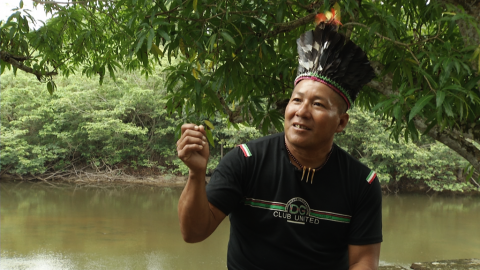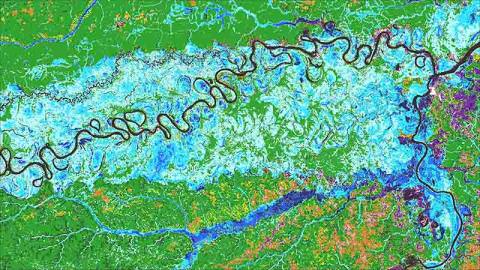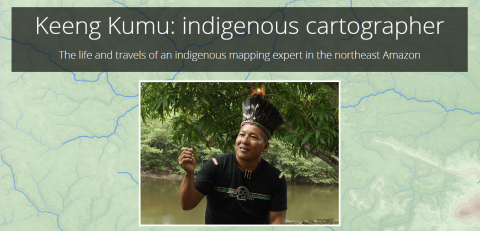Posts by Amazon Conservation Team
A Light in The Forest
Imagine that you live in a rainforest many hours from the nearest city. You are very poor, and life is precarious. A parade of soldiers, drug dealers, gangsters, and fortune hunters comes through the village from time to time. They take what they want. You can’t stop them, and no one comes to help you. One day, a man from the government comes and hands you the keys to your land, and says, “Here’s the forest, here’s the river, here are the animals, the plants, the fruits, the fish, the birds, everything on it – it’s yours. It’s now your job to protect it and manage it. That’s what you wanted, right? Good luck!”
Read MoreMocoa, Colombia: One Year After the Landslide
“…This magical land of water and rainforests is a giant water factory, much threatened by reckless development which is poorly planned and badly executed. The indigenous people who make their home have cautioned about deforestation, against building a road that caused enormous damage, resulting in landslides that killed well over a thousand people. Despite repeated warnings that were ignored by “experts,” on April 1, 2017, a disastrous avalanche destroyed much of the village Mocoa taking with it hundreds of lives mostly children and displacing thousands of families…”
Read MoreComida por árboles: la deforestación en el medio río Caquetá
Take a trip to the frontier of deforestation in the Colombian Amazon, where illicit actors are coercing local indigenous communities to cut down valuable trees through systems of insurmountable debt. (2018, Spanish)
Read MoreStorytelling empowers indigenous people to conserve their environments
Indigenous storytelling is a powerful tool for preserving biocultural diversity, says Álvaro Fernández-Llamazares, an environmental researcher at the University of Helsinki in Finland. Having heard stories in Bolivia, Costa Rica, Kenya and Madagascar, he has now proposed that storytelling could transform how conservationists work with native peoples. The Amazon Conservation Team (ACT) embodies this philosophy. ACT partners with South American indigenous communities to preserve rainforests and traditional culture.
Read MoreAluakumá, the Big Bat: Oral Histories in a Waurá Community
Oral Histories in a Waurá Community: In the village of Ulupuene, which partners with ACT, two elders and community leaders passed away: the regional “keeper of songs and dances,” Yakuana, who took with him a vast wealth of knowledge about Waurá cultural practices; and most recently, Aluakumá (“Big Bat”), a village elder, shaman, and healer. Both men were revered, and their kin expressed that they had lost more than just a loved one—they had lost an unrecoverable repository of cultural knowledge.
Read MoreHonoring a Leading Commitment to Conservation in Concert with Indigenous Peoples
On September 21, 2017, in the company of indigenous leaders and ACT staff, Colombian President Juan Manuel Santos was honored at the National Geographic Society for his special leadership in environmental conservation and his commitment to the preservation of biodiversity.
Read MoreWhy We Invested: The Amazon Conservation Team
When thinking about where and when to invest, we look closely at windows of opportunity, during which our engagement can have an outsized and catalytic impact. Such a window presented itself to us this spring in Colombia. In fall of 2016, President Juan Manuel Santos and the Revolutionary Armed Forces of Colombia (FARC) signed a…
Read MoreModern maps through traditional skills
For generations, indigenous people will talk about ‘their’ Keeng Kumu. His passion and talent have increased in value, through the enhancement and addition of modern technology. His passion for drawing maps of indigenous areas was supplemented with targeted training and resulted in a professional knowledge exchange.
Read MoreMonitoring the Colombian Amazon with Radar
In order to provide a baseline for the observation and study of the Colombian Amazon, particularly with regard to water and deforestation monitoring, ACT and the Dutch research unit SarVision have created a groundbreaking vegetation structure map of the Colombian Amazon.
Read MoreThe life and travels of an indigenous mapping expert
The Amazon Conservation Team relies on our indigenous partners to accomplish the work of protecting South America’s forests. See how the mapping of ancestral lands in collaboration with indigenous people is central to our conservation work, in our latest interactive story map.
Read More


